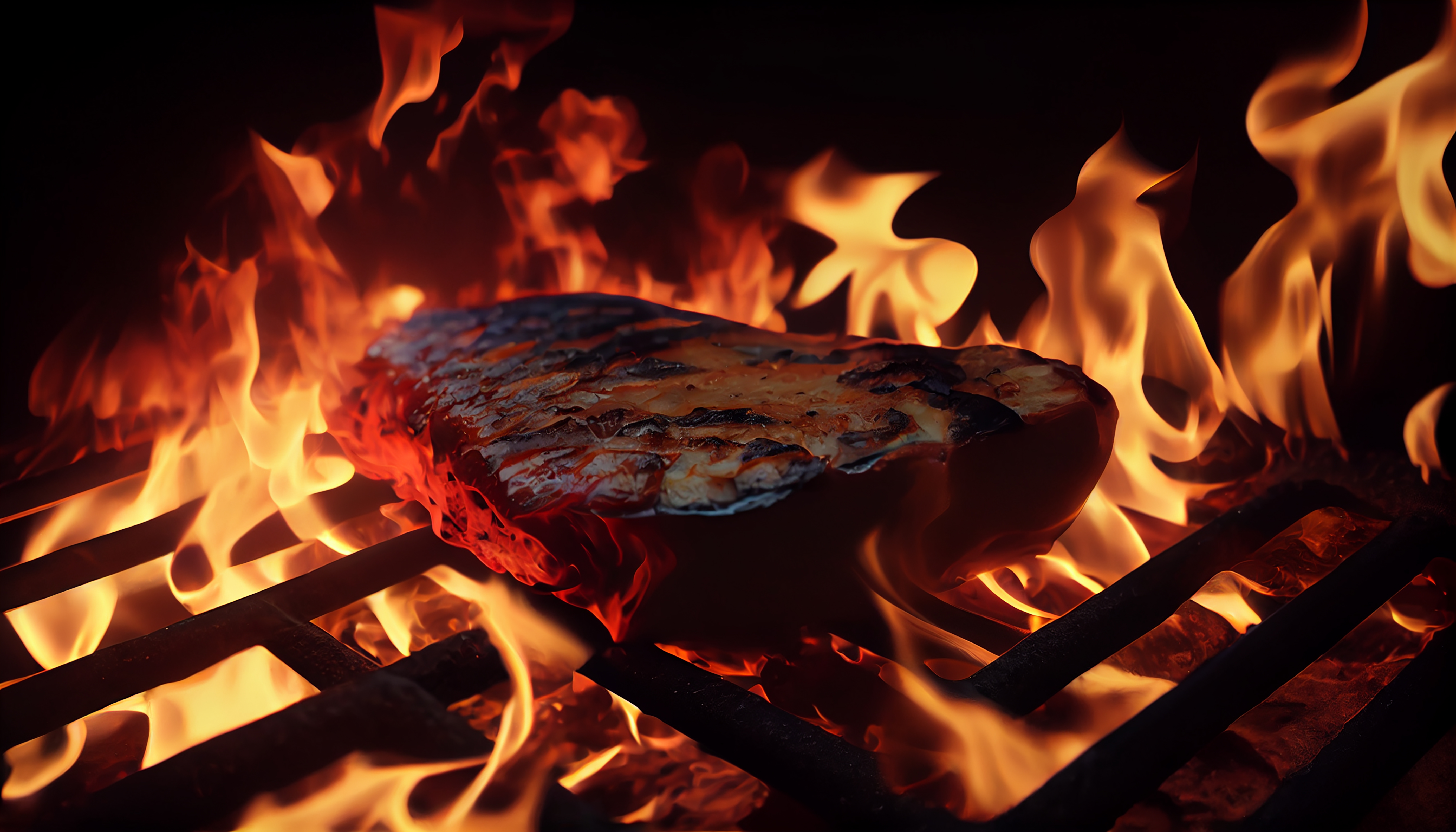
Cancer is one of the leading causes of death worldwide, and the search for the causes of this disease is ongoing. One area of investigation has been the role of certain compounds, such as heterocyclic amines (HCAs) and polycyclic aromatic hydrocarbons (PAHs), in the development of cancer.
Heterocyclic amines (HCAs) are a group of chemicals that are formed when meat is cooked at high temperatures, such as grilling or frying. HCAs are formed when amino acids, sugars, and creatinine, which are present in meat, react with the high heat. There are over 20 different types of HCAs that have been identified, with some being more potent carcinogens than others.
Polycyclic aromatic hydrocarbons (PAHs) are a group of chemicals that are formed when organic matter is burned, such as during the combustion of fossil fuels or wood. PAHs are also found in tobacco smoke and in charred food, such as grilled meats. PAHs are formed when organic compounds are not completely burned, leading to the formation of polycyclic aromatic compounds.
The role of HCAs and PAHs in cancer is still being studied, but there is evidence to suggest that these compounds can contribute to the development of certain types of cancer. Studies have shown that people who eat a lot of grilled or fried meats have an increased risk of developing certain types of cancer, including colon, breast, and prostate cancer. Similarly, people who live in areas with high levels of air pollution, which can contain high levels of PAHs, have an increased risk of developing lung cancer.
HCAs and PAHs are thought to cause cancer by damaging DNA in cells. This damage can lead to mutations in the DNA, which can cause cells to grow and divide uncontrollably, leading to the development of cancer. Additionally, HCAs and PAHs can interfere with the body's natural defense mechanisms, which can make it more difficult for the body to fight off cancer cells.
While it is not necessary to completely avoid foods that contain HCAs and PAHs, there are ways to reduce your exposure to these compounds.
Tips to reduce the build-up of HCAs and PAHs include:
- Avoid exposing animal proteins to an open flame or a hot metal surface.
- Avoid cooking animal proteins for a long period of time.
- Use low-temperature (180 °C) cooking techniques.
- Keep your grill spotless.
- Steer clear of overdone or well-done animal proteins.
- Remove animal proteins from the grill as soon as they are done cooking.
- When exposing animal proteins to high temperatures, partially boil them.
- Use an acidic marinade to season animal proteins (lemon, lime, vinegar, tomato, yogurt, etc.). This lowers the possibility of the animal proteins burning by forming a liquid barrier around them.
- To lessen the chance of burning, turn animal proteins over continuously on the grill.
- Discard the burned areas of the animal proteins.
- Focus on using moist cooking methods such as boiling, steaming, poaching, stewing, pressure cooking, etc. to create a liquid barrier around the animal proteins and reduce the risk of them burning.
- Avoid purchasing processed animal proteins such as sausages, ham, bacon, burgers, etc.
- Avoid purchasing smoked meats or home-smoking animal proteins. This includes things like smoked salmon, smoked beef, smoked chicken, etc.
While the role of HCAs and PAHs in cancer is still being studied, there is evidence to suggest that these compounds can contribute to the development of certain types of cancer. By taking steps to reduce your exposure to these compounds, such as through cooking methods and dietary choices, you can help reduce your risk of developing cancer.